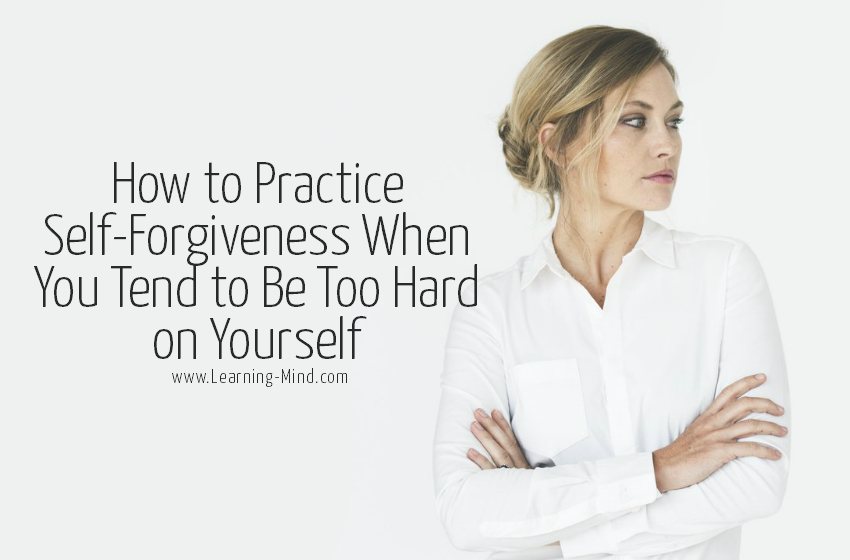
We must forgive others and sometimes we must practice self-forgiveness. No one is perfect. We all make mistakes.
Feeling bad for doing something wrong is normal. We should seek forgiveness when we’ve made mistakes or even been purposely cruel in the past.
However, dragging yourself through the mud for a long time after your regrets is not healthy. Self-forgiveness allows us to move on and learn how to be better people.
When you mess up or make a mistake, how many times do you apologize? One apology, made in the right way is enough to show you’re sorry for your actions.
When you apologize over and over, it doesn’t mean you’re any more or less sorry than with one heartfelt repentance. Sometimes groveling only makes some people use you and abuse your feelings. Try to remember that.
Some people can forgive themselves and be done with it, and some people get stuck in condemnation. I am sometimes those people. Lol
So, in order to practice self-forgiveness, we must sometimes first practice a few self-love tips. Here are some of the best.
When you have trouble forgiving yourself for something, you can try this: Write down how you’re feeling and take notice of the language you use when writing. Is your language positive? Well, probably not. But, you can use a positive outlook when talking to yourself about forgiveness.
Now, write down your good points. This includes your talents and strengths – basically, it’s all the things you like about yourself. Be honest. Do not describe yourself according to your shortcomings.
Write about the person you are separate from the mistakes you have made. This will help you gain perspective on your way to self-forgiveness.
Just as you would show compassion toward someone else who made a mistake, and I hope you would, you must also use compassion with yourself.
You deserve a break because the world can be harsh, and no one is perfect. So, everyone needs compassion to try again. Even you need love to give it another shot.
Here’s an interesting way to forgive yourself. If you’re really being exceptionally hard on yourself, ask a friend to role play with you. Let your friend be you and take on the mistake that you made.
Now, pretend you are supposed to forgive them for what they’ve done, which is what you’ve done. I’m willing to bet that you will forgive them pretty easily.
Now, take your identity back and forgive yourself. At this point, you should be in a place where you can see your mistake as just a mistake, whether large or small.
You can move on with less guilt and condemnation than before. Thank your friend for the help and embrace the growth you’ve just gained.
Even though the mistake may be bad, sometimes you have to put what you’ve done on hold until you can process it correctly. It is okay to take it and store it in a mental box until later.
Now, as you’ve moved away from the mistake for a while, do things you enjoy and think better of yourself. When you feel strong enough, you can open the box and deal with what you’ve done. It’s usually easier to forgive yourself when you’ve done this.
Words have so much power, both negative and positive. With some people, speaking aloud what they’ve done helps. This can lighten mental burdens and also help you see where you went wrong.
If you’ve hurt someone, you can see how and why you actually hurt them and the impact it had on their lives when you say what you’ve done.
In that process, you can find ways to heal from what you’ve done, and embrace self-forgiveness. If you’re feeling bad, just talk out loud to yourself or even to a friend.
We all make mistakes from time to time. Like I said before, they can be large or small, doesn’t matter. When we make mistakes, we learn many things.
So, if you can see and feel what you’ve learned after doing wrong, you are making great progress. Forgiving yourself allows you to become a better you instead of wallowing in your sorrows.
This is unhealthy and doesn’t change anything that happened before. What’s done is done, and all you can do is try harder to be better.
Self-forgiveness is necessary for living a full life. We will make so many mistakes that we will become accustomed to being flawed individuals. This is not to say we should do negative things and be proud of them, on the contrary.
We should always strive to be the kind and honorable in all situations. But if we fail, we should never be too hard on ourselves in an attempt to make things right. We must make amends and move on. It’s really the only way to truly practice self-forgiveness.
Have you forgiven yourself?
References: